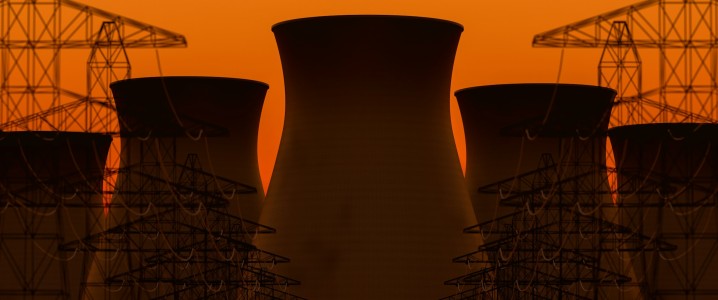Photo caption: Nuclear plants: credit: Oilprice.com
Several European countries, including Italy, Spain, and Denmark, are reevaluating or overturning bans on nuclear power due to energy security concerns and grid challenges with renewable sources.
While solar and wind remain crucial to Europe’s energy transition, the intermittent nature and grid integration issues are leading to consideration of nuclear energy as a supporting role, particularly small modular reactors.
The shift towards nuclear energy in Europe is driven by a desire for energy independence, a reaction to recent energy market volatility, and the need for a stable energy supply while renewable energy infrastructure develops.
Europe is embracing nuclear energy with a new vigor. Even the most historically staunch nuclear opponents are softening their restrictions on the carbon-free form of energy production as the continent continues to pivot away from oil and gas imports and toward energy independence in the long shadow of Russia’s invasion in Ukraine and the European energy crisis that followed.
In March, the government of Italy made a significant step toward overturning the nation’s 40-year ban on nuclear power production. In April, leadership in Spain indicated that they would be open to reconsidering the phase-out of nuclear plants in that nation. And just this month, Denmark followed Italy’s lead in publicly announcing the legal revisitation of its nuclear ban, and Germany – Europe’s starkest nuclear energy adversary – agreed to drop its opposition to nuclear power in European Union legislation, in cooperation with France. A German official called the move “a sea-change policy shift” that will remove roadblocks and increase efficiency in energy policymaking within the European Union.
According to a report from CNBC, “The renewed European interest in nuclear shows how some countries are hedging their bets in pursuit of more energy independence.” However, it’s also related to the “hidden cost” of balancing and transporting electricity from renewables, the outlet reports.
While solar and wind remain much cheaper alternatives for power generation, their rapid expansion in European grids has not been without challenges. Last month, one of the worst blackouts in European history crippled power grids across Spain and Portugal, and many think that the rapid buildout of renewable resources in that region could be to blame. While official reports on the cause of the blackout are still in investigation stages, critics have been quick to point to the fact that around 70% of Spain’s electricity production at the time of the blackout, and that Spain’s solar capacity growth has outpaced the rest of Europe by a factor of two.
Furthermore, the pivot toward renewable energy has caused some volatility in European energy markets, where prices have occasionally dropped below zero over the past year. While these price crashes are great news for European consumers, who have been battered by high utility bills in recent years, they’re bad news for the sector and the climate, as they can discourage further investment in renewable capacity expansion.
Despite these challenges, solar and wind remain critically important to Europe’s energy independence and for climate goals. But leadership is clearly looking for a stop-gap while renewable-charged grids get their sea legs. “Solar and wind are still the cheapest and fastest way to drive the green transition, and that remains our focus. But we also need to understand whether new nuclear technologies can play a supporting role,” Lars Aagaard, Denmark’s minister for climate, energy and utilities, was quoted by CNBC.
A lot of this renewed attention to nuclear power is focused on the rollout of small modular reactors, rather than traditional nuclear plants. This relatively nascent technology offers a lot of advantages for countries like Denmark and Italy who phased out their nuclear workforces, and thereby national nuclear expertise, years ago. Unlike full-scale nuclear power plants, which require years of design and planning, these small modules are built in a factory setting and assembled on-site with a relatively small crew, and require little oversight.
“We have no recent experience with nuclear power, and we lack the necessary knowledge regarding safety and waste management. That’s why we must begin a serious analysis — not to replace solar and wind, but to see whether new nuclear can complement our energy system in the future,” Aagaard said about Denmark’s aversion to traditional nuclear development.
=== Oilprice.com ===



